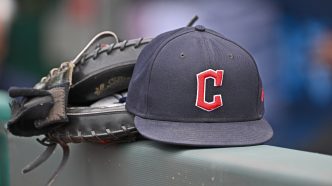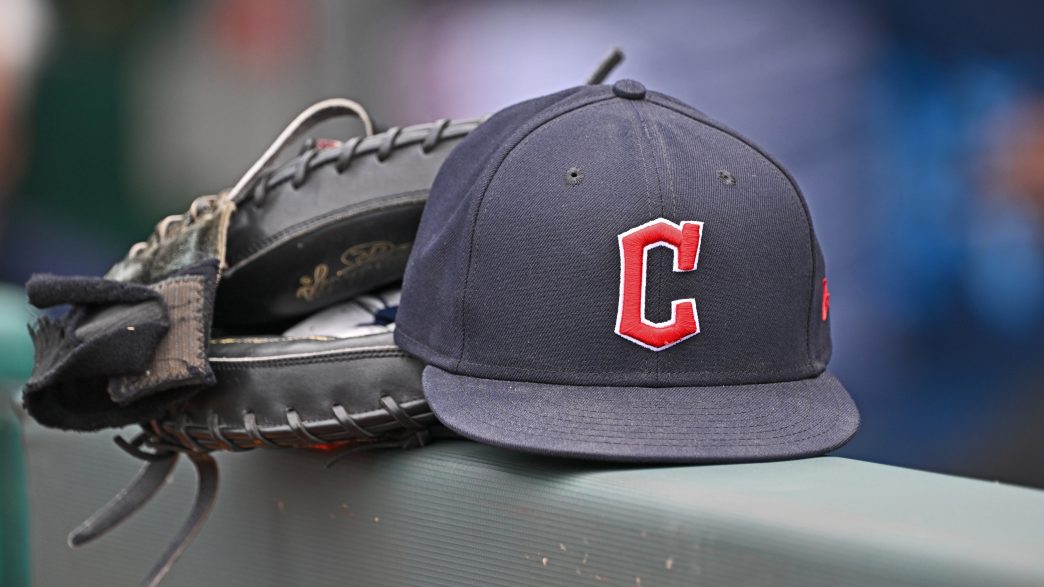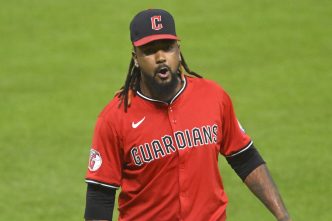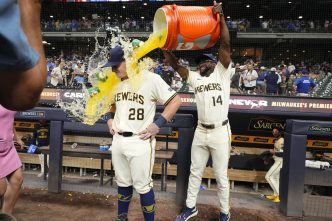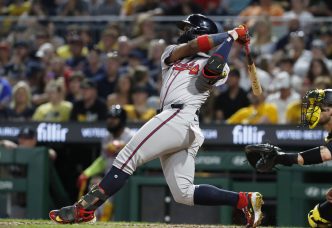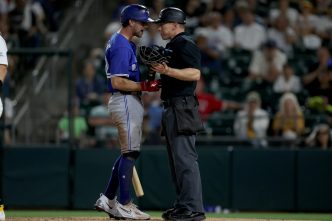President Donald Trump’s recent call for the Cleveland Guardians to revert to their former name, “Indians,” has reignited a long-standing conversation about the franchise’s identity and its relationship with cultural sensitivity. In a post on Truth Social, Trump claimed there is “a big clamoring” for the change and urged the team’s owners to take action, suggesting that their decision is a reflection on Native American heritage.
The Guardians made the formal switch to their current name in November 2021, a change influenced by decades of criticism from Native American activists who viewed “Indians” and the associated imagery as culturally insensitive. This decision came after community protests and ongoing discussions about the impact of sports names and mascots. The new name pays homage to the Guardians of Traffic statues that adorn the Hope Memorial Bridge, a landmark close to Progressive Field.
Cleveland’s baseball team has a significant history, adopting the name “Indians” back in 1915. While the exact origins are somewhat hazy—there’s evidence that it started as a temporary designation—the name persisted for over a century. Alongside the name change, the team removed its contentious “Chief Wahoo” mascot prior to the 2019 season, although the trademark remained in use for merchandise.
Following Trump’s statements, Guardians president of baseball operations Chris Antonetti shared his thoughts with reporters, making it clear that he was unaware of the former president’s remarks. He acknowledged the differing perspectives that exist regarding the franchise’s name change and emphasized that the organization is looking forward to building its brand as the Guardians moving forward. “We’ve gotten the opportunity to build the brand as the Guardians over the last four years and are excited about the future,” he noted.
It’s worthwhile to remember that Trump has a history with the team, having attempted to purchase the franchise back in 1983. His previous comments, including criticism of the name change as a result of “cancel culture,” reveal his consistent stance against what he sees as the influence of social movements on sports.
Paul Dolan, the owner of the team, explained the impetus behind the name change stemmed from a combination of social unrest and a nationwide reevaluation of race relations that gained prominence following George Floyd’s death in 2020. The organization engaged deeply with its fan base, conducting a survey of 40,000 supporters and holding extensive interviews with community leaders and stakeholders. This dialogue was pivotal in recognizing the negative impact the former name had on a segment of the community.
“Our role is to unite the community,” Dolan asserted, making it clear that the decision was not taken lightly. He recognized the emotional connections many fans had with the previous name but emphasized that it was essential to address the hurt feelings associated with it. Ultimately, Dolan’s insights encapsulate a growing awareness in sports about the importance of cultural respect and the need for names that reflect unity rather than division. As the Guardians advance, they will continue to navigate this complex terrain, forging a new identity that seeks to resonate positively within the diverse community they serve.

